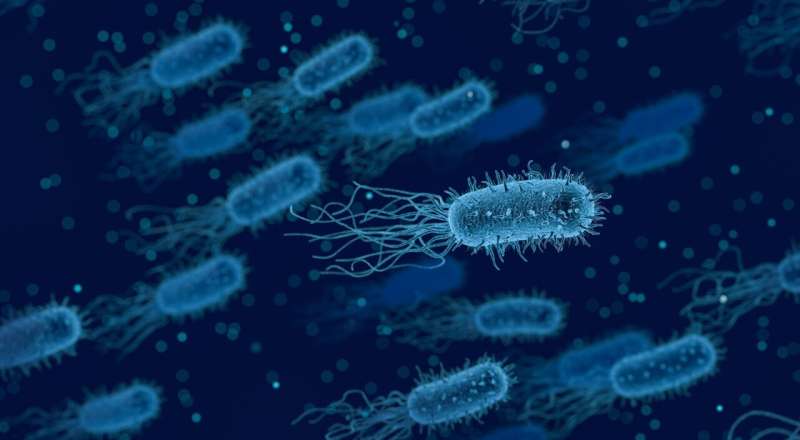Cell-cell signaling of GI bacteria can unlock future infection preventions

Published in Nature Communications, research from the University of Minnesota and Mayo Clinic sought to understand how microbial communities help people resist pathogens.
Researchers observed that strains of bacterium Enterococcus faecalis (E. faecalis), a common bacterring in the
gastrointestinal (GI) tract of humans, signal to each other during gene transfers to the intestinal tract of animal models. When E. faecalis becomes imbalanced in the body, it can cause infection in the GI tract.
"We found that pheromone induction within microcolonies in the GI tract suggests that adherent microcolonies on the surface of the intestine comprise an important niche for cell-cell signaling and plasmid transfer," said Gary Dunny, a professor of microbiology and immunology at the U of M Medical School.
The study found that:
- the pCF10 plasmid increases competitive fitness of bacteria unrelated to antibiotic resistance;
- an intracellular signaling system regulating plasmid transfer functions in GI tract; and,
- that small bacterial biofilms on the intestinal surface function as an important niche for signaling and plasmid transfer.
This research demonstrated a novel effect of a plasmid on the ability of its host bacterium to colonize and persist in the natural environment, as well as the importance of a communication between bacterial cells.
"When someone has a bacterial infection, antibiotics are the go to treatment. Interfering with bacterial signaling might be a useful approach to prevent or treat hospital infections without directly increasing antibiotic resistance," said Dunny.
The researchers recommend further studying of the use of genetic approaches to further probe the mechanisms of in vivo signaling and plasmid transfer.
More information: Helmut Hirt et al, Dynamics of plasmid-mediated niche invasion, immunity to invasion, and pheromone-inducible conjugation in the murine gastrointestinal tract, Nature Communications (2022). DOI: 10.1038/s41467-022-29028-7
Journal information: Nature Communications
Provided by University of Minnesota Medical School



















